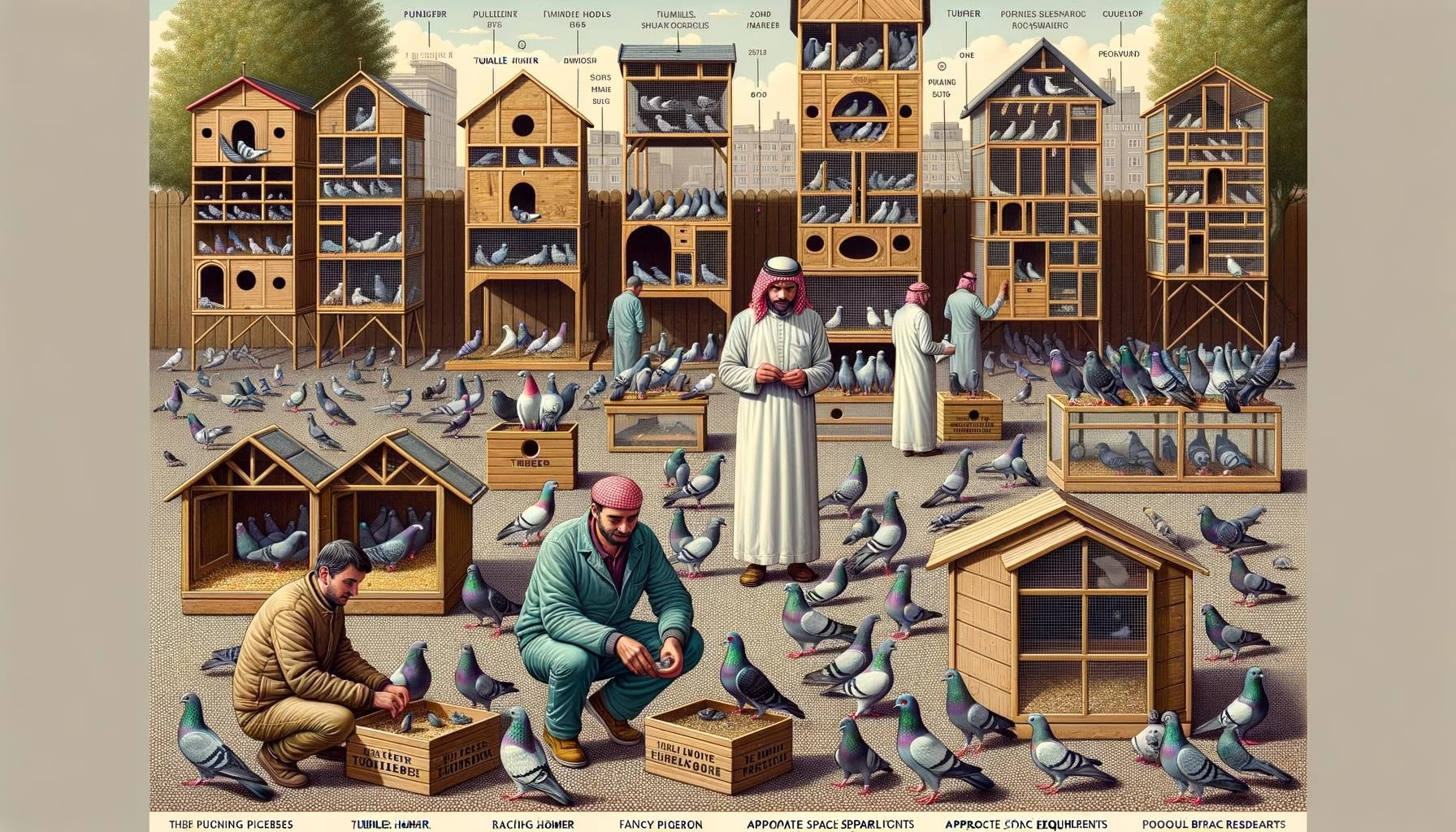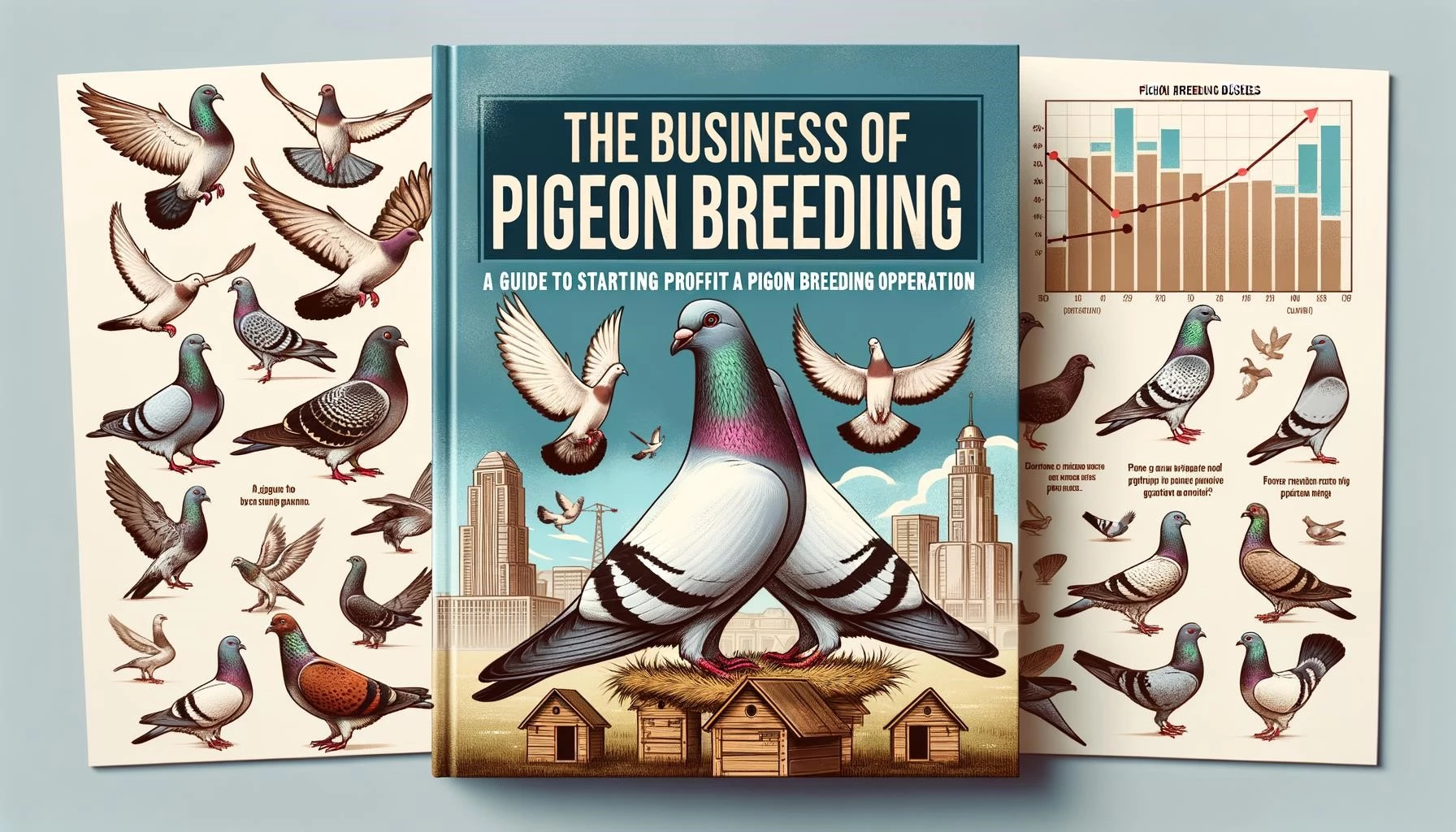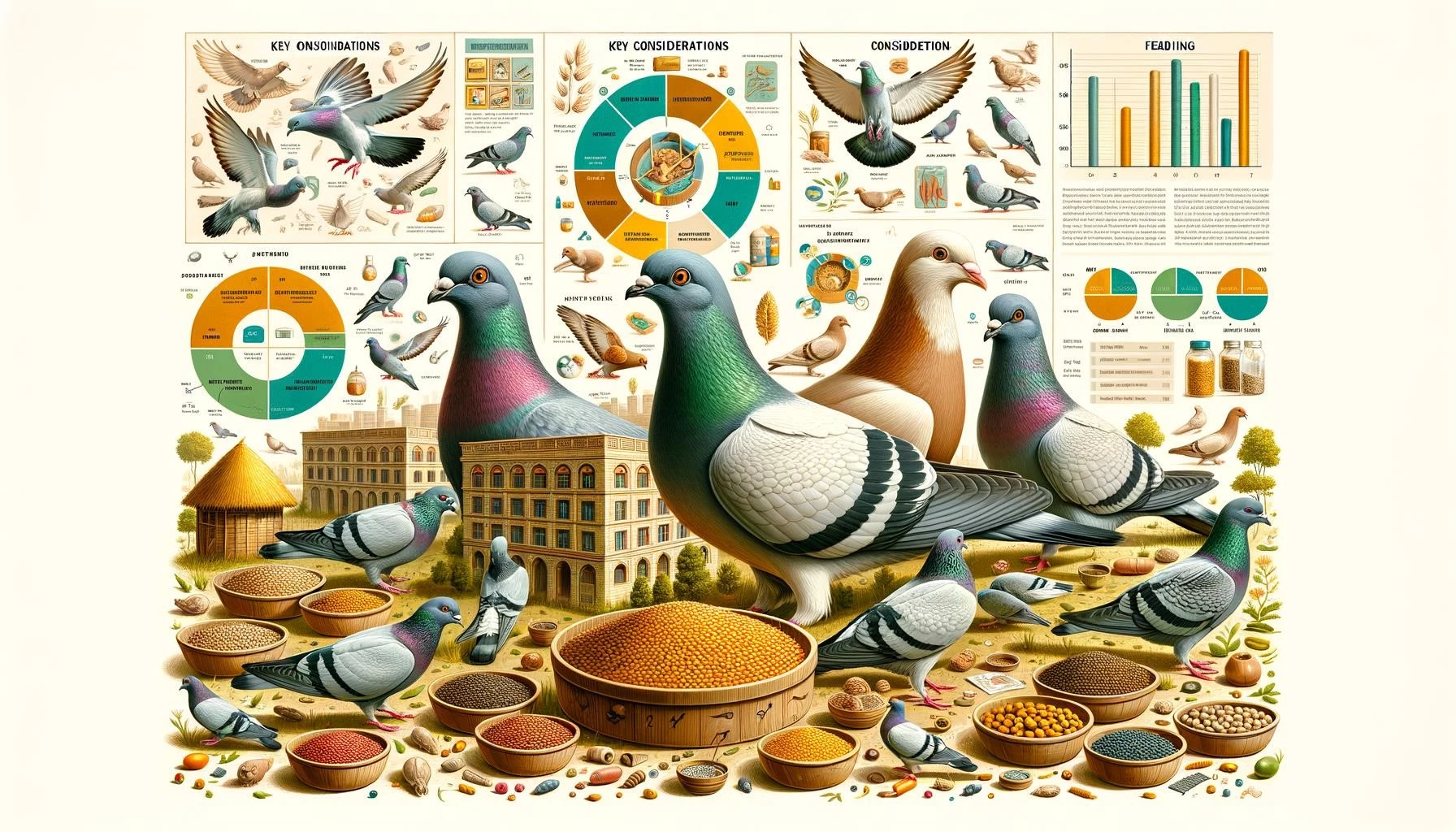Many people find joy and fulfillment in breeding pigeons on a small scale. Whether it’s for a hobby or to start a small pigeon farm, pigeon breeding can be a rewarding and interesting endeavor. This article will explore the topic of small-scale pigeon breeding and provide valuable insights on various aspects of this practice.
Key Takeaways
- Small-scale pigeon breeding can be a rewarding hobby or a starting point for a small pigeon farm.
- A pair of pigeons can be successfully housed in a box three feet square and equipped with a wire front.
- Pigeons require adequate space for breeding, with a general rule of four square feet of pen and four square feet in the coop area for each breeding pair.
- There are various pigeon breeds suitable for small-scale breeding, including American Fantails, Figuritas, Portuguese Tumblers, and Homing Pigeons.
- Pigeon breeding requires following basic principles and guidelines to ensure a successful breeding season.
Housing and Space Requirements
When it comes to housing pigeons for small-scale breeding, there are a few options. A simple and practical option is a box measuring three feet square and equipped with a wire front. This setup provides enough space for a pair of pigeons to breed comfortably. On the other hand, some breeders prefer more elaborate buildings with covered fly pens, which can also be acceptable to pigeons.
When providing housing for breeding pigeons, it is important to consider adequate space. A good rule of thumb is to provide four square feet of pen space and four square feet in the coop area for each breeding pair. This allows the pigeons to have enough room to move around, exercise, and carry out their breeding activities.
Selecting Pigeon Breeds for Small-Scale Breeding
One of the exciting aspects of pigeon breeding is the variety of breeds available to choose from. For small-scale breeding, it is advisable to select breeds that are suitable for beginners and do not require extensive care. Some popular pigeon breeds for small-scale breeding include:
- American Fantails: These pigeons are known for their attractive fan-shaped tails and gentle nature. They make good beginner breeds and can be easily handled.
- Figuritas: Figuritas are small-sized pigeons that originated in the Mediterranean. They are known for their agility and playful behavior, making them a great choice for small-scale breeding.
- Portuguese Tumblers: These pigeons are one of the smallest breeds available. They are highly energetic and have beautiful feather patterns. Their small size makes them suitable for smaller housing setups.
- Homing Pigeons: Homing pigeons are known for their exceptional homing instincts. While they are commonly used for racing and homing purposes, they can also be bred on a small scale.
It is important to research each breed’s specific requirements, care needs, and behaviors before selecting them for breeding.
Principles and Guidelines for Successful Pigeon Breeding
Breeding pigeons, even on a small scale, requires adherence to certain principles and guidelines to ensure a successful breeding season. Here are a few key considerations:
- Health: Ensure that your pigeons are in good health before allowing them to breed. Regularly check for any signs of illness, provide a balanced diet, and maintain proper hygiene in the pigeon loft.
- Mating Pairs: Select compatible mating pairs that exhibit strong breeding qualities. It is important to consider factors such as breed characteristics, genetic diversity, and performance.
- Nesting and Egg Care: Provide nest boxes or suitable nesting areas for the pigeons. Ensure that the nesting material is clean and suitable for incubating eggs. Monitor the eggs closely and provide the necessary care until hatching.
- Feeding and Nutrition: Pigeons require a well-balanced diet to support healthy breeding. Provide a mix of grains, seeds, pellets, and fresh fruits and vegetables. Additionally, ensure that the pigeons have access to clean, fresh water at all times.
- Regular Observation: Regularly observe the pigeons for any signs of distress, diseases, or abnormalities. Promptly address any issues that arise and seek veterinary assistance if necessary.
By following these principles and guidelines, you can increase the chances of a successful breeding season and the production of healthy offspring.
In conclusion, small-scale pigeon breeding can be a rewarding and enjoyable endeavor. By providing suitable housing, selecting appropriate breeds, and following essential principles for successful breeding, you can embark on a fulfilling journey of raising pigeons.








